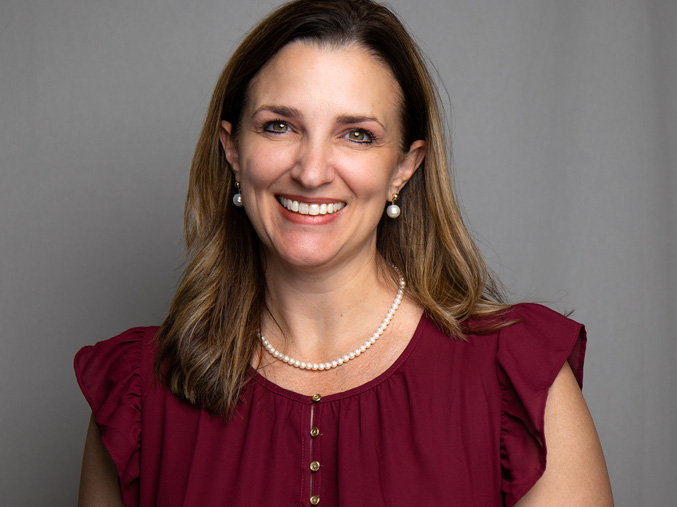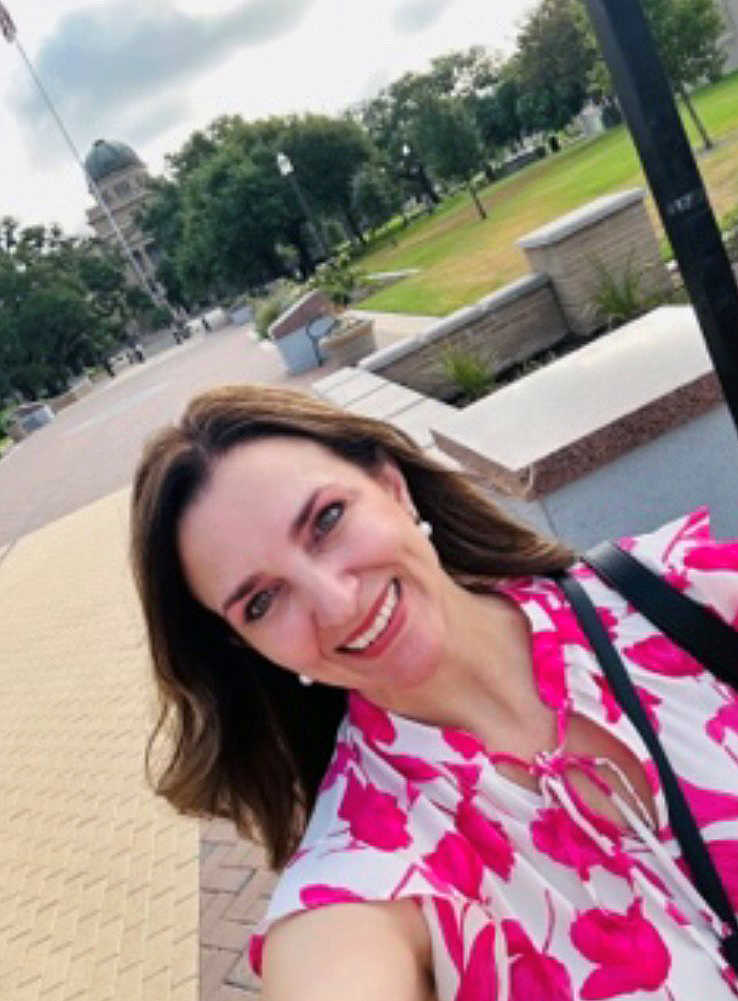
As mental health struggles continue to surge on college campuses across the United States, the need for accessible resources and professional assistance is increasingly evident if not also inherently critical.
This week, the College of Arts and Sciences at Texas A&M University welcomes one of its most crucial hires in preparation for the fall semester: Angie McDonald, a licensed professional counselor who will be working in tandem with college and university leadership to safeguard the emotional well-being of students in Arts and Sciences.
McDonald’s appointment, effective July 24, is in conjunction with a new campus-wide initiative to embed mental health professionals across the Texas A&M campus in an effort to strengthen the university’s commitment to enriching student services and enhancing the educational environment. She will office in Suite 301 of the Academic Building as a member of the college’s student success team, led by Associate Dean for Student Success Dr. Leroy Dorsey.

“I am thrilled to be joining and working with University Health Services, Dr. Dorsey and the College of Arts and Sciences,” McDonald said. “I love the college population, and I am excited to help students improve their mental and emotional wellness.”
McDonald’s resume features a number of experiences that will benefit the student body within the college.
“Angie will be located in the Academic Building and is excited to build this new partnership with both the faculty and staff as well as our students in the College of Arts and Sciences,” said Lanice Bennett, director of strategic initiatives and partnerships within University Health Services.
Having McDonald’s office within the college will allow her to be closer to a greater student population while also providing them with more accessible care, Bennett notes. In addition, McDonald’s arrival will help to alleviate another issue surrounding mental health services — scheduling and attending sessions with counselors they do not know.
“A student’s comfort with scheduling may increase when they see their counselor regularly around their own home space,” Bennett said. “It becomes much easier to schedule with Angie when the student sees Angie and knows who she is.”
For every 1% increase in student enrollment, there is a 5% increase in the number of students seeking counseling services, according to Bennett. The university’s new mental health initiative not only works to provide students with the necessary means to combat the effects of this ongoing mental health crisis, but also to create a safe and personalized environment for each student’s specific needs.

“Professional and graduate students might need to hear workshops offering a topic about family and academic balance, while a first-gen population might benefit from workshops on how to navigate care resources in a large university setting,” Bennett said. “Because an embedded counselor has closer involvement with their population, the counselor can help inform the entire team of University Health Services professionals of the particular needs for that group of students.”
In addition to the implementation of mental health professionals, Bennett says that the university has been working to expand the already-existing embedded counselor model. In the midst of a nationwide critical shortage in mental health providers, University Health Services has made major strides with this expansion, hiring seasoned professionals earlier this year to prepare for the upcoming fall semester, set to begin August 21.
“I believe this is an important step to provide yet another opportunity for students to access mental health services, but also to communicate to them that we are approaching this crisis with as many tools as possible for their well-being,” said Dorsey, a professor in the Department of Communication and Journalism.
Because students’ mental health can greatly impact their academic performance, Bennett says mental health professionals like McDonald are vital to helping Texas A&M students accomplish their goals, both on and off campus. However, she stresses the need for a comprehensive, communal approach, given that many students are likely to first seek support from their friends and family, or a professor or trusted faculty member on campus, rather than a counselor.
“Mental health is everyone’s responsibility,” Bennett said. “When everyone realizes their important role in creating a culture of caring, mental health is then supported across a healthier community.”
I am thrilled to be joining and working with University Health Services, Dr. Dorsey and the College of Arts and Sciences. I love the college population, and I am excited to help students improve their mental and emotional wellness.
